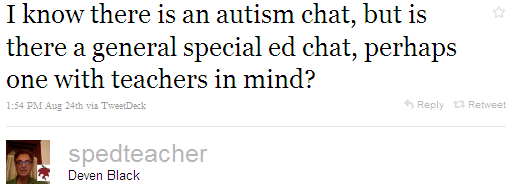I originally wrote this blog post for parenting blog This Mommy Gig; it appeared on July 29th, 2008, and I’ve edited it slightly for inclusion here. Although the subject matter falls slightly outside my normal scope here at AoC, I’m posting it in the interest of consolidating my posts on other blogs here. It’s not too difficult to draw parallels between what I write about here and how each of our prior life experiences shape the ways in which we interact with our children and/or our students.
***
There’s this song by Ben Folds that brings me to tears whenever I hear it. “Still Fighting It” is essentially a love song to his son, and the line that hits a little too close to home for me is, “You’re so much like me… I’m sorry.”
I’m not shy about tooting my own horn when it comes to my strengths, and I’m always proud when I think I see them in my son. His love of books and puzzles, his problem-solving skills, his fairly early grasp of phonics – I’m proud to have helped laid the groundwork for this sort of thing, both through nature and nurture. Like any 3-year-old, of course, he has his moments – the temper tantrums, the irrationality, the occasional laser-like focus on certain elements to the exclusion of everything and everyone else around him – and we roll with the punches. I try to keep my cool and engage in all that positive behavior support that I learned about in grad school (and really, that many teachers learn simply from years of experience dealing with people). But there are some times when it’s even harder than usual to maintain that detachment – when I see him grunt or tic, when I see him whine incessantly about nothing, and when I see him terrified of the most benign things (e.g., soap bubbles). Those times, I feel like it’s 1980 and I’m looking at a 3-year-old version of myself.
Let me be clear: I know these things are perfectly normal behaviors for 3-year-olds to display, which is why I regard my emotional response to them as problematic. I’m not sure if it’s more a sense of self-loathing or overprotection that makes me feel this way; moreover, I’m not sure which is worse. Maybe it’s the uncertainty of it all – for example, I had a variety of physical tics (including grunting and twitching) when I was young; and truth be told, I have never managed to completely kick them (I’ve just become an expert at masking them). When I see my son grunt for no apparent reason, it scares me. I start to question myself – is he going to have to endure the teasing that I had to because of this? Is this my fault? Is he learning by watching me, or is this genetic? What have I done? And I just go down the rabbit hole of anxiety and neuroses typically reserved for brand-new parents of infants.
I’d be lying if I said this doesn’t impact how I react to these behaviors. Yes, I’ll typically react more harshly when I see these than when he does something that wasn’t problematic for me as a kid. Intellectually, I know that’s no good, but I’m so emotionally scarred by invested in what I believe people’s reactions to those behaviors will be that I sometimes find it hard to treat the situation with the cool head and clinical perspective that befits someone in my profession.
Looking up the road for my son sometimes feels like looking back down my own well-trod path. In looking into his future, my greatest fear is that I’ll see the same pitfalls and traps I went through being painfully socially awkward and withdrawn for much of adolescence, and the resultant bullying and teasing (or should that cause-effect relationship work the other way around?). I’m not here to say my childhood was significantly worse than anyone else’s (hell, I probably got off easy compared to what could have been), but to look at the larger significance of my concerns, I guess I kind of want him to learn from my mistakes before he gets a chance to make them himself. Not too unreasonable, right?
Makes me wonder if I’m more concerned about protecting him from having to experience them, or protecting myself from having to watch him experience them.

